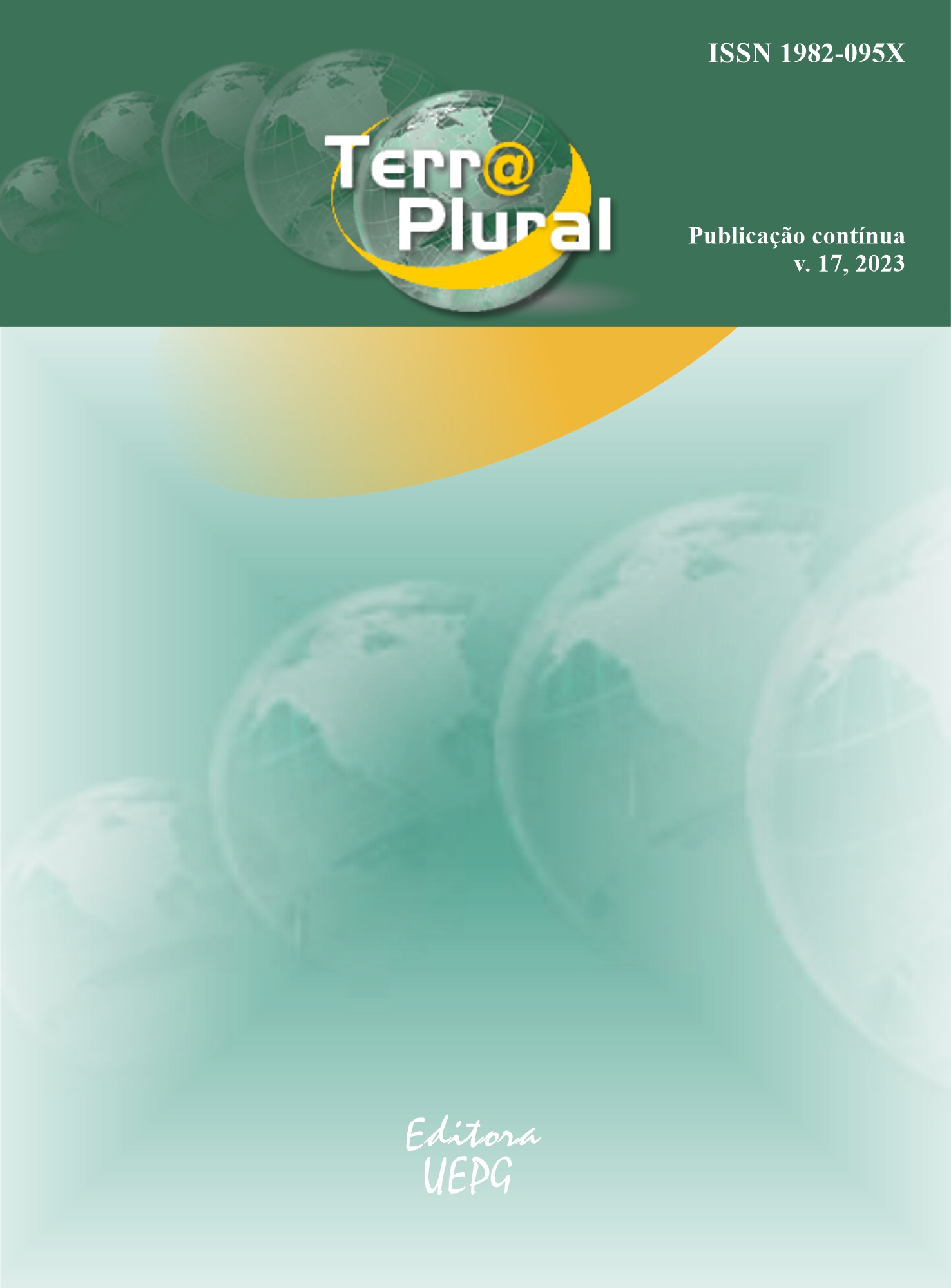When we think of urban afforestation in Brazil, what comes to mind is a mouth that has lost its teeth
DOI:
https://doi.org/10.5212/TerraPlural.v.17.2321654.004Keywords:
Biodiversity of tropical cities, Urban afforestation, Environmental justice, Global Hotspots of Biodiversity, Urban ecologyAbstract
Abstract: The conservationist mentality of classifying pristine and degraded environments has given way to a more intelligent approach, that is, producing and applying knowledge to increase and support biodiversity in human habitats. Cities have a high potential for the conservation of biological diversity, but it is not fully feasible without considerable planning and management inputs. There are many ecosystem services provided by trees in urban ecological systems, whose positive impact on human well- being is consensual in the literature. Likewise, the capacity of urban flora, especially woody vegetation, to attract and support fauna has been proven in several studies. Tropical megadiverse countries whose cities are undergoing rapid urbanization such as Brazil face the double challenge of creating cities that can support biological diversity, with environmental justice. The most important tool for solving these demands is urban afforestation planning. However, the capacity of Brazilian cities to plan and execute tree-planting projects is low. In this essay, we discuss the main difficulties related to urban afforestation in Brazil and present some alternatives for increasing the number of trees and species and for the democratization of their benefits, especially in neighborhoods with low socioeconomic status.
Downloads
Downloads
Published
How to Cite
Issue
Section
License
Copyright (c) 2023 Fabio Henrique Soares Angeoletto, Enrique Richard, Jeater Santos, Neiva Guedes, Simoni Loverde Oliveira, Ricardo Massulo Albertín, Alesson Guirra, Eliana Raposo, Gedeone Ferreira Lima, Normandes Matos da Silva

This work is licensed under a Creative Commons Attribution-NonCommercial-NoDerivatives 4.0 International License.
Revista Terr@ Plural will obtain the auctorial rights for all published texts. This also implies that the text can be published anywhere in the world, including all rights on renewal, expansion, and dissemination of the contribution, as well as other subsidiary rights. The authors get permission to publish the contribution in other media, printed or digital, it may be in Portuguese or translation since the publication is credited to Revista Terr@ Plural. It allows the self-archiving of published articles in institutional repositories, thematic repositories, or personal web pages in the pdf version downloaded from the journal's site.















